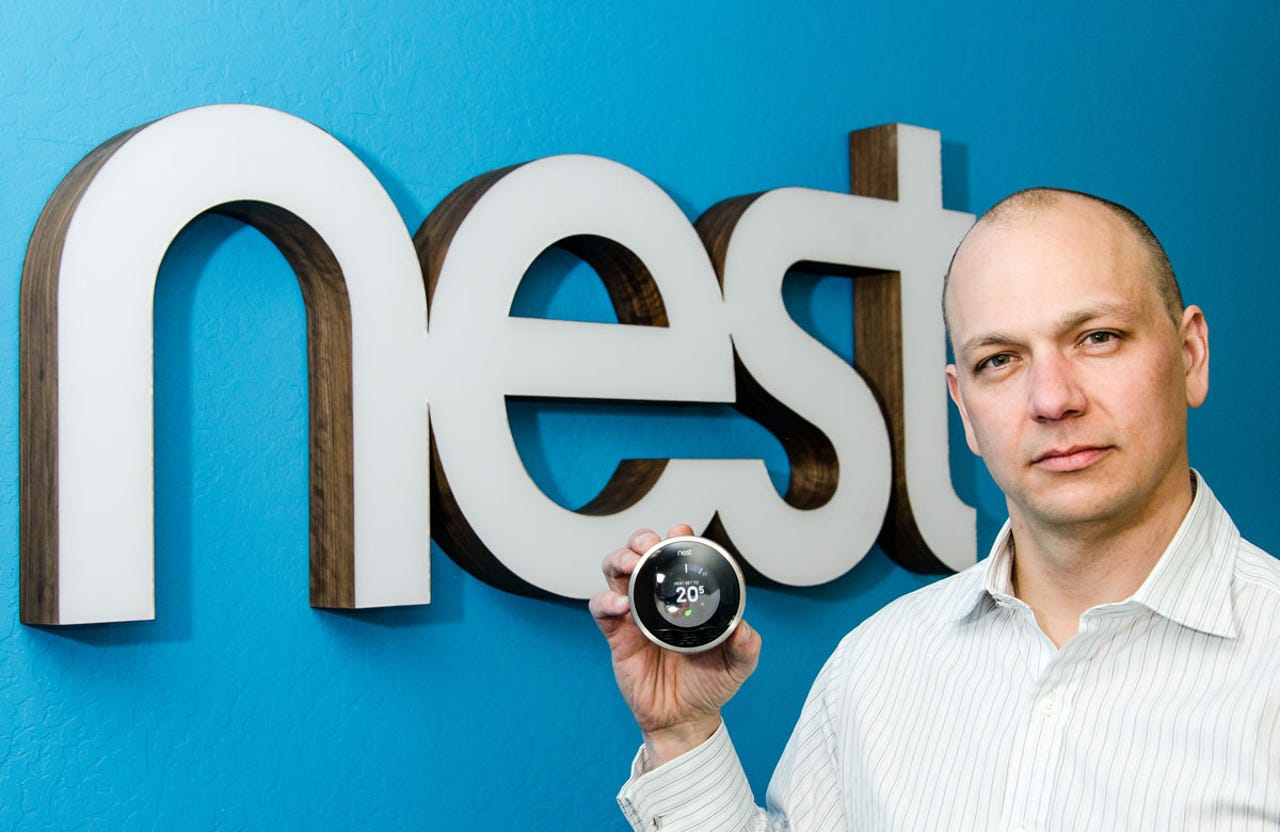Tony Fadell, founder of Nest, steps down as CEO


At Apple, Tony Fadell helped develop both iPod and iPhone. He co-founded Silicon Valley start-up Nest, which develops intelligent appliances, such as the Nest thermostat that Fadell shows here in front of the company logo in 2012.
Tony Fadell, the founder of Nest Labs, is stepping down as CEO, he announced in a blog post Friday.
Marwan Fawaz, a managing partner at Sarepta Advisors who previously ran Google's Motorola Home Business division, is joining Nest as the company's new CEO.
Fadell said he will "remain involved in my new capacity as an adviser to Alphabet and Larry Page."
Google purchased Nest for $3.2B in January of 2014, and the company has been emblematic of the Internet of Things movement since rolling out the Nest Learning Thermostat in 2011.
"The connected home went mainstream because of Nest," Fadell declared in his blog post.
However, there have been signs of turmoil at the company. After generating $340 million in revenue last year, the subsidiary was pegged as underperforming. In April, Nest announced it is shutting down its Revolv device smart hubs. Meanwhile, the company's 2014 acquisition of the connected camera-maker Dropcam turned into a sore point for Fadell.
In his blog post Friday, Fadell of course highlighted the company's strengths, such as its 50 percent year-over-year growth and the four new hardware products it shipped in 2015.
"The future of Nest is equally as bright given the strong and experienced leadership team in place, as well as the two-year product roadmap we've developed together to ensure the right future direction," he wrote.
In an interview with Bloomberg, Fadell brushed off criticism of his company. "This is just normal course of business, you know? Different priorities come up, different things change," he said. "So, look, everyone has their opinion. I just know that when I look at the numbers and I say we shipped four new products, when we have millions of customers, happy customers, when you look at the star ratings that's the reality of the situation."
He added, "Do I wish I could ship more products? Sure, I wish I could. So no, I'm happy with where we're at. It's taken a lot of work and time to get there, but we have multiple teams up, running, highly experienced people. People can have their opinions, and I know the facts."